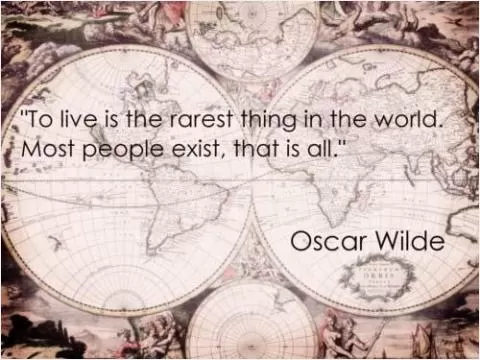The English are always degrading truths into facts. When a truth becomes a fact it loses all its intellectual value

The English are always degrading truths into facts. When a truth becomes a fact it loses all its intellectual value
Oscar Wilde, the renowned Irish playwright, poet, and author, was known for his wit, humor, and keen observations on society. One of his famous quotes, "The English are always degrading truths into facts. When a truth becomes a fact it loses all its intellectual value," reflects his disdain for the rigid and unimaginative nature of English society during his time.Wilde was a master of satire and often used his works to critique the societal norms and values of Victorian England. In this particular quote, Wilde is suggesting that the English have a tendency to reduce profound truths to mere facts, stripping them of their deeper meaning and significance. In doing so, they diminish the intellectual value of these truths and fail to appreciate their complexity and nuance.
For Wilde, truth was not simply a matter of empirical evidence or objective reality; it was a deeper, more profound concept that encompassed the complexities of human experience and emotion. By reducing truths to facts, the English were missing out on the richness and depth of these truths, and were instead focusing on superficial and simplistic interpretations.
Wilde's critique of English society can be seen in his own works, such as "The Importance of Being Earnest," where he satirizes the hypocrisy and superficiality of the upper classes. In this play, Wilde uses wit and humor to expose the absurdity of societal conventions and the shallow values that govern the characters' lives.
Overall, Wilde's quote reflects his belief in the importance of intellectual curiosity, critical thinking, and a willingness to engage with complex and challenging ideas. By degrading truths into facts, the English were limiting their intellectual horizons and missing out on the deeper truths that lie beneath the surface. Wilde's critique serves as a reminder to value and appreciate the complexity and richness of truth, rather than reducing it to a mere fact.












 Friendship Quotes
Friendship Quotes Love Quotes
Love Quotes Life Quotes
Life Quotes Funny Quotes
Funny Quotes Motivational Quotes
Motivational Quotes Inspirational Quotes
Inspirational Quotes